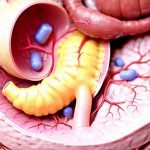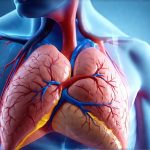That uncomfortable feeling after a quick evening meal – the tightness in your abdomen, the embarrassing gurgling sounds, the sensation of being overly full even if you didn’t eat much. It’s a common experience for many people, and it can range from mildly annoying to genuinely disruptive. Often happening when we’re already tired at the end of the day, bloating and gas after dinner can leave us feeling sluggish and uncomfortable, impacting sleep quality and overall well-being. But why does this happen, particularly with those rushed evening meals that so many of us rely on? It’s rarely a single cause, but rather an interplay between what we eat, how quickly we eat it, and our individual digestive systems.
Understanding the root causes is the first step to managing these symptoms. While occasional bloating and gas are perfectly normal – a byproduct of digestion itself – frequent or excessive discomfort warrants attention. This isn’t about striving for a life without any gas; it’s about identifying triggers and adopting strategies to minimize those unwelcome after-dinner sensations. Many factors contribute, from the types of carbohydrates we consume to stress levels and even eating habits developed over time. The goal is not elimination but rather mindful management for greater comfort and improved digestive health. If you suspect a deeper issue, consider exploring liver imbalance.
Dietary Culprits & Rapid Digestion
Certain foods are more prone to causing gas and bloating than others. This isn’t necessarily a reflection of the food itself being “bad,” but rather its composition and how our bodies process it. Foods high in FODMAPs (Fermentable Oligosaccharides, Disaccharides, Monosaccharides, And Polyols) are well-known culprits. These carbohydrates aren’t fully absorbed in the small intestine and instead ferment in the large intestine, producing gas as a byproduct. Common FODMAP-rich foods include:
- Onions and garlic
- Apples, pears, and peaches
- Wheat and rye
- Legumes (beans, lentils)
- Dairy products (for lactose intolerant individuals)
However, it’s not just what we eat, but also how quickly. When we rush through a meal – as often happens with quick evening dinners – several things occur. First, we tend to swallow more air, contributing directly to gas buildup. Second, insufficient chewing means larger food particles enter the digestive system, requiring more effort from our stomachs and intestines. This incomplete breakdown can lead to fermentation and increased gas production. Finally, rapid eating doesn’t allow your body to register fullness effectively, potentially leading to overeating and exacerbating bloating. Proper digestion requires time and attention. Sometimes, even changes in cold weather can worsen digestive issues.
Quick meals often rely on convenience foods – processed options with ingredients that may be harder to digest. These frequently contain additives, artificial sweeteners (like sorbitol or mannitol – also FODMAPs), and high levels of fat, all of which can slow down digestion and contribute to discomfort. The combination of these factors explains why a speedy dinner is so often followed by an uncomfortable evening. Consider the difference between slowly savoring a home-cooked meal versus quickly inhaling a pre-packaged frozen dinner – the digestive impact will be significantly different.
Identifying Personal Triggers
Everyone’s digestive system is unique, and what triggers bloating in one person may not affect another. Keeping a food diary can be incredibly helpful in identifying your personal sensitivities. This doesn’t have to be an overly restrictive process; simply note down everything you eat for a week or two, along with any associated symptoms (bloating, gas, discomfort) and their severity. Look for patterns:
- Are there specific foods that consistently cause problems?
- Does the timing of your bloating relate to certain meals or snacks?
- Do portion sizes seem to make a difference?
Once you’ve identified potential triggers, you can experiment with eliminating them one at a time to see if it improves your symptoms. This is sometimes called an elimination diet, but it’s best done thoughtfully and potentially under the guidance of a registered dietitian or healthcare professional. Remember that restrictive diets aren’t always sustainable long-term; the goal is to find a balance between comfort and enjoyment. Understanding your body’s individual responses is key. If you have concerns about whether gas and bloating are food related, keeping this diary can help determine the source.
The Role of Fiber & Hydration
While often touted for their health benefits, high fiber intakes can sometimes contribute to bloating, especially if you’re not accustomed to them. Suddenly increasing your fiber intake without adequate hydration can lead to constipation, which exacerbates gas and discomfort. Soluble fiber (found in oats, beans, and apples) absorbs water and forms a gel-like substance in the gut, potentially causing bloating if consumed in excess.
However, cutting out fiber isn’t the answer! Fiber is essential for digestive health. The key is to increase your intake gradually and ensure you’re drinking enough water. Aim for at least eight glasses of water per day, and consider spreading your fiber intake throughout the day rather than consuming a large amount in one sitting. Also, different types of fiber affect people differently; experiment with various sources to find what works best for you. A balanced approach to fiber is crucial. For those who have undergone bariatric surgery, managing fiber intake can be particularly important.
Mindful Eating Techniques
Rushing through meals is a common habit, but it significantly impacts digestion. Practicing mindful eating can make a world of difference. This involves slowing down, paying attention to your food, and savoring each bite. Here’s how:
- Eliminate distractions: Turn off the TV, put away your phone, and focus solely on your meal.
- Chew thoroughly: Aim for 20-30 chews per bite. This helps break down food and reduces air swallowing.
- Eat slowly: Take breaks between bites and consciously slow down your eating pace.
- Listen to your body: Pay attention to fullness cues and stop eating when you’re satisfied, not stuffed.
These techniques require conscious effort initially, but they become easier with practice. By slowing down and being present during meals, you give your digestive system the time it needs to function optimally, reducing bloating and gas. Mindful eating is a powerful tool for improving digestive health. Probiotics can also be helpful in supporting this process.
It’s also worth considering the overall context of your evening routine. Stress and anxiety can significantly impact digestion, leading to increased gas and bloating. Finding ways to manage stress – through exercise, meditation, or simply taking time to relax – can contribute to better digestive function. Similarly, regular physical activity promotes healthy gut motility, reducing constipation and associated discomfort. The connection between mind and body is profound, and prioritizing both physical and mental well-being is essential for overall health, including a comfortable digestive system. And don’t forget that high altitudes can also play a role in gas production.


















